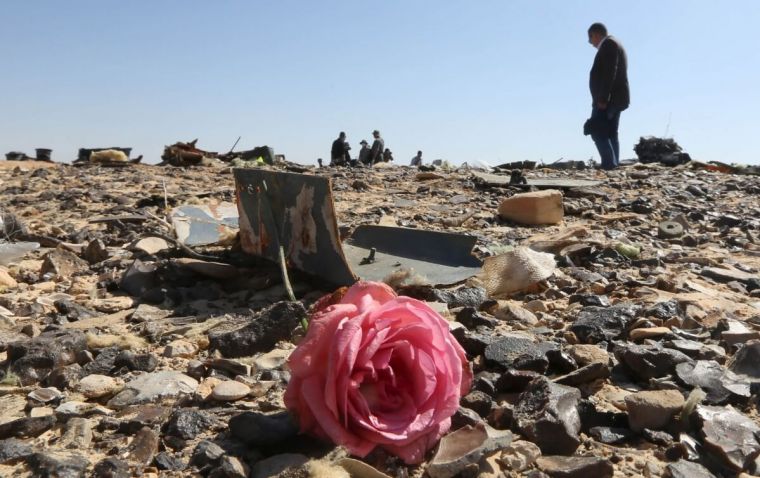Probers uncover intel about '2-hour timer' bomb placed at doomed Russian airliner's fuel lines

Probers sifting through the remains of a Russian Metrojet passenger jetliner that crashed in Sinai last week and killed 224 passengers have reportedly uncovered intelligence about a time bomb called "two-hour timer" and are linking it with their working theory that Islamic State (ISIS) operatives planted the bomb on the plane's fuel lines before it took off at the airport in the popular Sharm el-Sheik resort area for St. Petersburg.
A source told Fox News that the apparent lack of residue immediately found in the area may prove that investigators' speculations are correct and must not be taken lightly.
Fox News was also told that both scenarios point to an "airport insider" responsible for the terrorist attack.
"If proven accurate, if ISIS did put a bomb on this aircraft which I believe to be true, it's a new chapter with respect to ISIS," said Texas Republican Rep. Mike McCaul.
"We always assumed al-Qaeda had this capability but now if ISIS has this capability, the threat to American airlines as well and our homeland, I think is very significant."
McCaul, who receives regular briefings, said he cannot discuss any more classified information, but cautioned the Obama administration for consistently underestimating ISIS by placing his focus on gaining territory, rather than expanding its reach to global plots.
Citing sources, Fox News said the time bomb may have brought down the Russian jet.
The Metrojet 9268 disintegrated approximately 23 minutes into the flight. Investigators are now focused on a "90-minute window" before the flight took off and who had access to the aircraft during that time, reports said.
Probers are reportedly interviewing ground crews and those with access to the departure lounge, as well as reviewing surveillance camera video for added information.
When asked in a Tuesday hearing whether C-4, an explosive provided to the Iraqi military by the U.S., had been obtained by ISIS, Pentagon said that "no U.S. munitions were involved in whatever transpired with the crash itself.
The U.S. government and the intelligence community said there are no firm conclusions reached yet about the cause of the explosion and crash.











